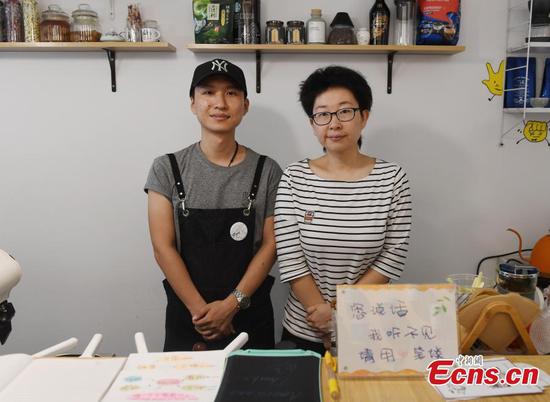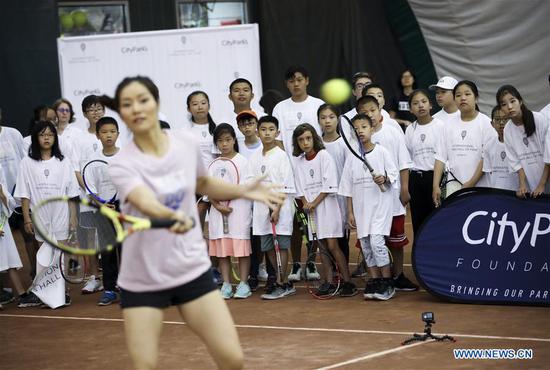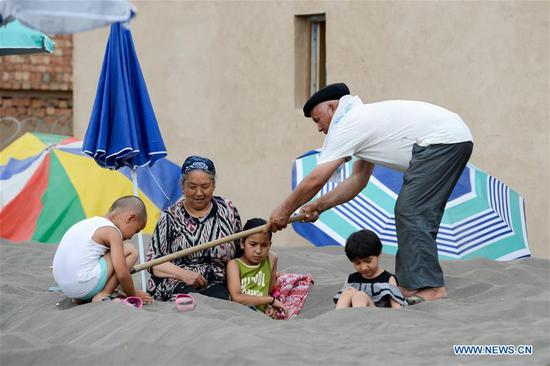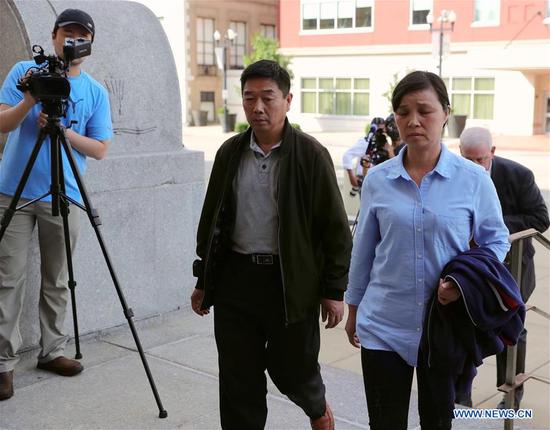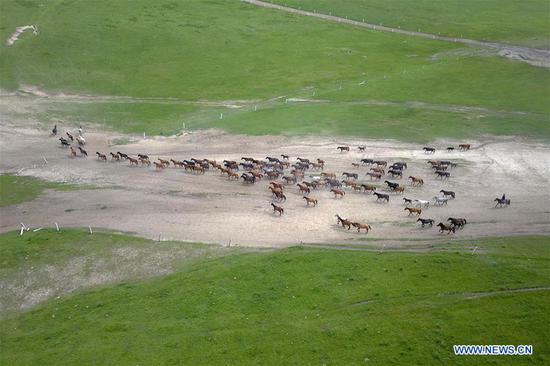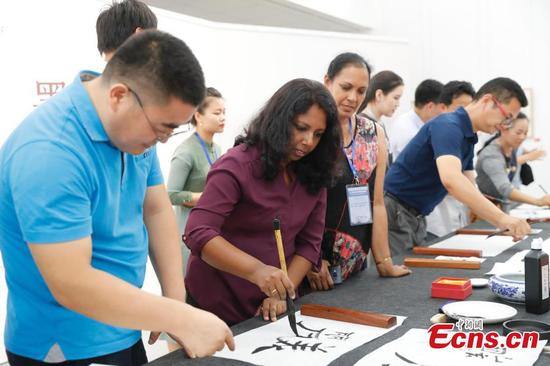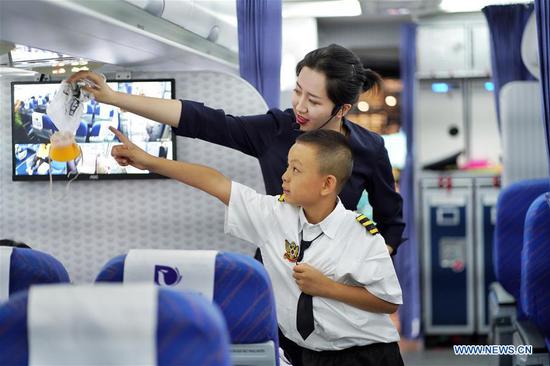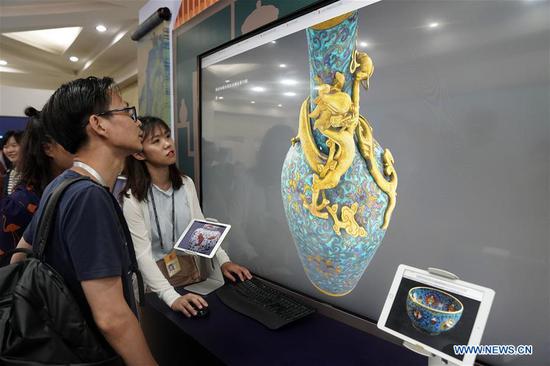Over this year's summer vacation, many Chinese pupils are ditching app-based homework and picking up pens and paper to preserve their eyesight.
Zhu Ting, a resident of Hefei, capital of Anhui province, supervised her 9-year-old son while he completed his homework, including writing and math by hand.
Her son's teachers were banned from assigning summer homework to be completed on mobile apps.
"But it was not always like this," Zhu said.
When he was in first grade, she installed various apps on her phone, such as English dubbing, math operation and essay writing.
"However, my kid was addicted to the screen, which affected his eyesight," she said.
Educational apps have caught on among Chinese schools and families in recent years.
In April 2018, the number of monthly active users of educational apps in China exceeded 220 million. Among them, users aged between 6 and 18 reached 146 million, up 41 percent year-on-year, according to a report published by QuestMobile, a leading big data service provider.
However, app-based homework is a double-edged sword. It can help students in learning, but excessive screen time and a lack of outdoor activities can cause myopia, also known as nearsightedness.
China is combating myopia among children and teenagers as the disease has become severe in recent years.
More than half of Chinese children and teenagers suffered from myopia in 2018, figures from the National Health Commission show.
In February, Zhejiang province issued a draft regulation to ban app-based homework assignments, limit the use of electronic devices to 30 percent of total teaching time and encourage the issuing of paper homework to be completed by hand.
Zhejiang is among a bevy of Chinese provinces taking measures to help students reduce reliance on app-based homework to tackle vision problems.
In Fujian province, the local government requires schools to strictly control the assignment of homework through educational apps. The daily time for doing electronic homework for junior and senior middle school students should be no more than 20 minutes.
Xiong Bingqi, vice-president of 21st Century Education Research Institute, a leading educational think tank in China, said limiting the amount and time of app-based homework assignments is of great significance to alleviating teenagers' myopia.
He also noted that schools and teachers should be given more liberty to guide students to use apps and online resources based on the needs of school subjects and students' ages.
"We need to update our knowledge of online education and evaluate its actual effect in a professional way to help teachers and parents make choices," said Wang Yi, a family education counselor.
"The quality of online education should be improved. Simply putting the contents of textbooks and teaching materials on the screen is not appropriate," Wang said.
Wang said that where she lives in Xi'an, Shaanxi province, primary schools also required the reduction or elimination of web-based homework for the summer holidays and encouraged more sports activities and parent-children interaction.
"The homework goes offline, aiming to train children's problem-solving abilities and help them cultivate good habits. It is undoubtedly more popular," Wang said.













